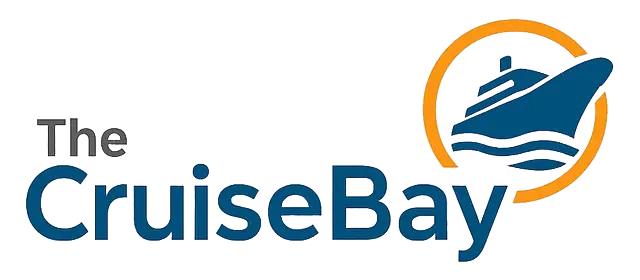Cruise ships are like floating resorts that can travel across vast oceans. They combine comfort with the ability to move long distances, making them a popular choice for vacationers. Whether someone is taking their first cruise or has travelled by sea before, knowing how fast cruise ships go can help them better understand travel times, plan their trips, and see how cruise lines are focusing more on fuel efficiency and sustainability in 2025.
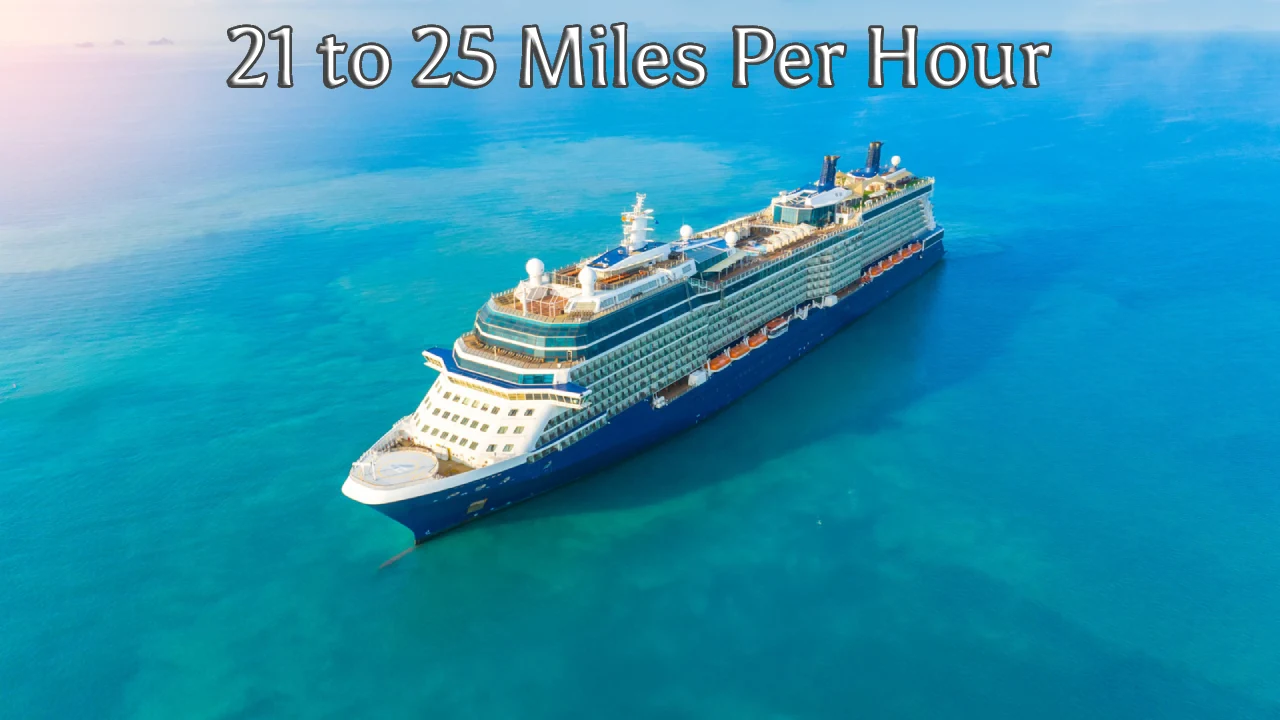
On average, most cruise ships travel at a speed of 18 to 22 knots, which is approximately 21 to 25 miles per hour.
Average Speed of Cruise Ship
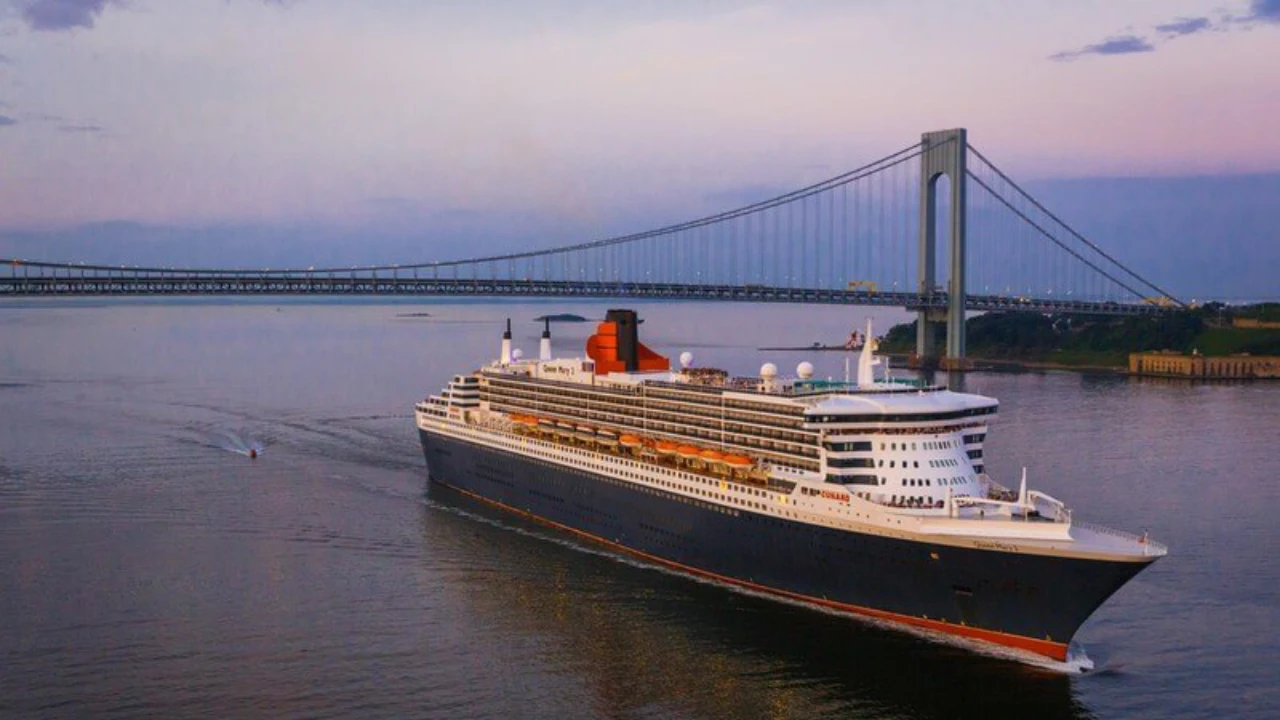
The speed of a ship is usually measured in knots because it’s based on nautical miles, which align with Earth’s latitude and longitude. One knot equals 1.15 miles per hour. According to this,
- Average Speed: Most modern cruise ships usually travel at a speed of 18 to 22 knots, which is about 21 to 25 miles per hour (33 to 41 km/h). That may seem slow compared to cars or airplanes, but for a huge ship the size of a floating hotel, it’s just the right speed for smooth, safe, and efficient sailing.
- Maximum Speed: Cruise ships can go faster if needed, but they usually don’t. Their top speed can be around 25 to 30 knots, which is about 29 to 35 miles per hour.
How Fast Do Cruise Ships Go at Night?
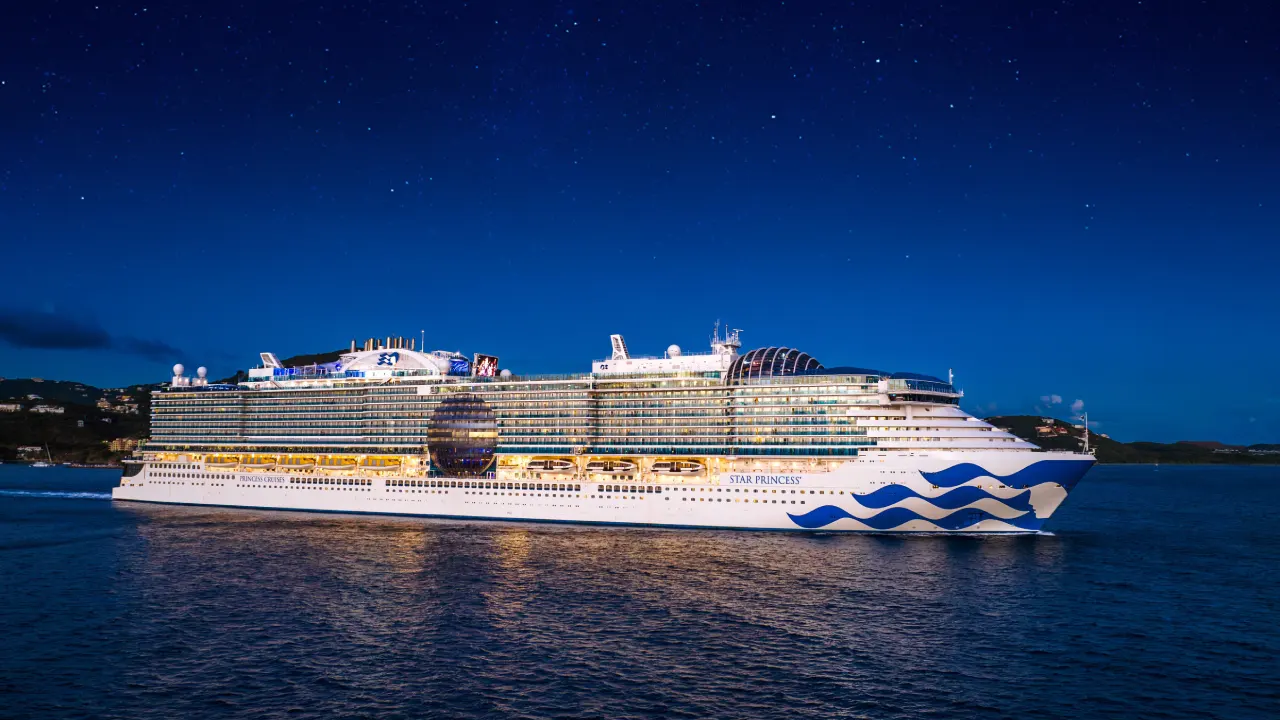
Cruise ships often maintain the same speed at night as during the day, typically around 18–22 knots. However, they may slow down the speed at night near ports, busy areas, or when they are ahead of schedule.
Navigation teams remain fully staffed at night, ensuring continuous safe travel using radar, sonar, and satellite systems.
Fastest Cruise Ships in the World (as of 2025)
As of 2025, some of the fastest cruise ships are:
| Cruise Line | Ship Name | Max Speed (Knots) | Max Speed (mph) |
|---|---|---|---|
| Queen Mary 2 (Cunard) | Ocean liner hybrid | 30 knots | ~35 mph |
| Royal Caribbean | Oasis-class ships | 22–25 knots | ~26–29 mph |
| Norwegian Cruise Line | Breakaway-class | 23.5 knots | ~27 mph |
| Carnival Cruise Line | Vista-class | 23 knots | ~26.5 mph |
| Royal Caribbean International | Anthem of the Seas | 24 knots | 27.6 mph |
| Disney Cruise Line | Disney Adventure | 21.5 knots | 27 mph |
Why Cruises Push the Limits
Cruise ships usually travel at moderate speeds; however, they may go faster, reaching up to 24 to 30 knots, in certain situations, like:
- Sea Trials: Before a ship takes its first official trip, it goes through sea trials to test how it performs. During these trials, the ship’s top speed and other key features are carefully checked.
- Making Up Time: If a ship encounters delays due to weather or other unforeseen circumstances, the captain might increase speed to stay on schedule.
- Outrunning Bad Weather: In some cases of severe weather, a captain might choose to speed up to move out of the storm’s path more quickly, prioritizing passenger safety and comfort.
Factors Influencing Cruise Ship Speed
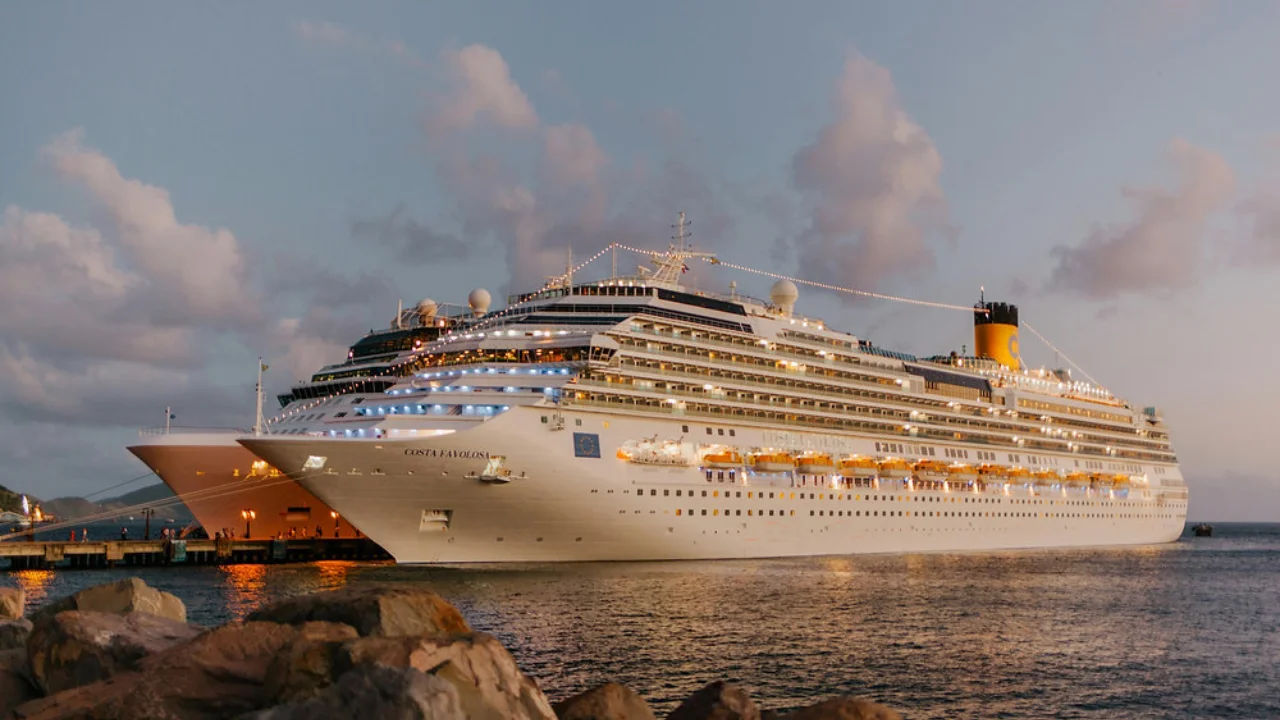
Several factors influence the speed of a cruise ship during a voyage:
Itinerary and Schedule
The main factor that decides how fast a cruise can go is its schedule. Captains precisely calculate the required speed to arrive at each port on time – not too early (as port fees are often charged by the hour) and not too late, as that could affect passenger activities and the rest of the trip.
Fuel Efficiency
Speed and fuel are directly related to each other. The faster a ship goes, the more fuel it burns. That’s why cruising at slower speeds helps save fuel, cut costs, and reduce harm to the environment. Nowadays, many cruise lines are focusing on being more eco-friendly and managing speed to use less fuel.
Weather and Sea Conditions
Bad weather, strong winds, or ocean currents can slow a cruise ship down or force it to change direction or speed to keep passengers safe and comfortable. On the other hand, helpful currents can make the ship go a bit faster.
Ship Design and Size
Bigger ships usually have stronger engines and can go faster, but their large size also creates more resistance in the water. The shape of the ship’s hull is also important, as it affects how smoothly and efficiently the ship moves through the sea.
Passengers Comfort
A smoother ride means a better experience for passengers. By cruising at moderate speeds, the ship reduces too much rocking or up-and-down movement, especially in open seas, so everyone can enjoy the trip without feeling uncomfortable.
The 2025-2026 Landscape: Speed and Sustainability
Looking ahead to 2025 and 2026, cruise ship speed is becoming more connected to bigger industry trends, especially the focus on sustainability.
- Eco-Friendly Technologies: The cruise lines are working hard to reduce its environmental impact. New technologies like hybrid engines, cleaner fuels such as green methanol and bioLNG, and using onshore power at ports are all helping ships stay eco-friendly, even with longer travel routes.
- Optimized Voyage Planning: Cruise lines now use smart software and real-time weather updates to plan the best routes and speeds. This helps them save fuel and stay on schedule at the same time.
- Passenger Experience: Even though ships can go faster, the focus is on making the trip smooth, on time, and enjoyable.
Conclusion!
So, how fast do cruise ships go? Cruise ships may not be fast, but they move at a steady speed that balances comfort, efficiency, and care for the environment. As cruise technology improves, travellers can expect smarter trips, not always faster ones, that meet the needs of passengers and support eco-friendly cruising.
How Fast Do Cruise Ships Go? – Common Questions Answered
Most cruise ships travel at a speed of 18 to 22 knots (about 21–25 mph).
Speed is measured in knots, where 1 knot equals 1.15 miles per hour.
Cruise ships usually maintain the same speed at night as during the day, typically around 18 to 22 knots, depending on the itinerary and sea conditions.
No, speed varies by ship class, route, and purpose of the cruise.
Carnival cruise ships typically operate at a speed of 23 knots (~26.5 mph).
Cruise ships typically travel at speeds of 21 to 25 miles per hour (mph).
The top speed can reach up to 25–30 knots (around 29–35 mph), though it’s rarely used.
Cruise ships operate at a speed of 33 to 41 km/h.
Disney Cruise Line ships generally cruise at about 19.5 to 22 knots.
Large cruise ships typically travel at speeds of 20 to 24 knots, which equals about 23 to 28 mph (37 to 45 km/h).
Modern cruise ships typically travel at speeds of 18 to 22 knots, which is about 21 to 25 mph (33 to 41 km/h).
“To understand how speed impacts environmental footprint, check out our article on Eco‑friendly Green Cruising.”
“Also see, Millennial & Gen‑X Cruise Trends 2025.”
